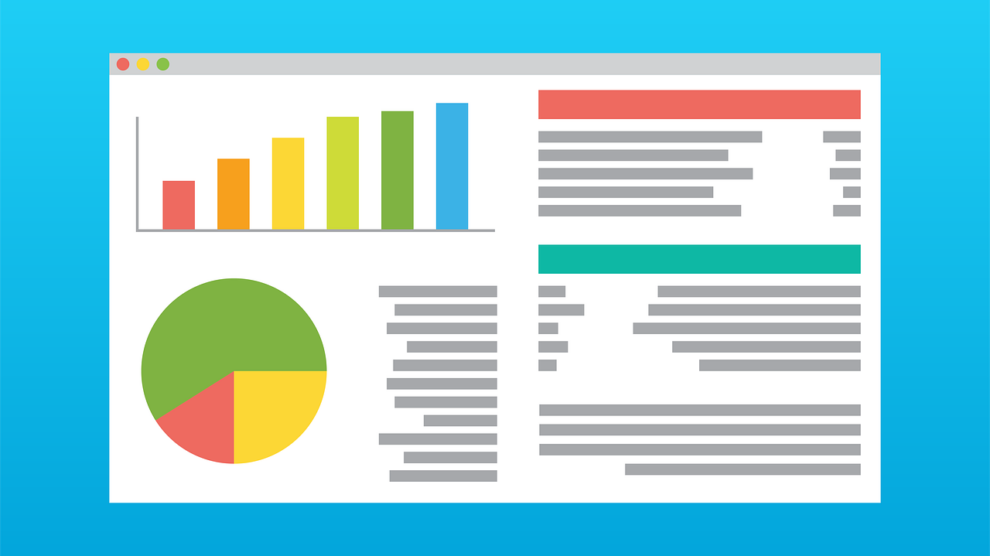The e-commerce industry is one of the most sought-after industries in the world today. With an e-commerce giant like Amazon making its founder the richest man in the world, the scope and demand of this industry type are simply multiplying. Now, with this huge demand, the competition between businesses is pretty high too. This makes it imperative for business owners to adopt efficient strategies towards improving product quality, enhancing customer service, creating a better marketing model, and more.
For this, a data foundation needs to be laid, which can help owners dig deeper into the performance of the business in the past and make futuristic decisions based on the same for boosting work productivity and business growth. In short, the e-commerce industry needs data management solutions in the form of business intelligence and analytics to streamline its processes, understand customer behavior and market trends, work on marketing strategies, and compete hard with their peers.
Business intelligence and analytics include the use of practices, technologies, and applications for the collection of data through software, integrating it into valuable information in the form of stats, and analyzing the same for the adoption of competitive strategies and making wise decisions.
Important Statistics
• According to Census.gov, total sales for retail increased by only 5.7% as compared to the increase of 15.2% in online e-commerce sales in Q2 2018.
• 72% of businesses are actively using analytics to improve the experience of their customers, explains a Deloitte report.
• However, as per Econsultancy, only 20% of e-commerce retailers who use analytics are actually using it effectively.
• Another survey conducted by Deloitte revealed that 60% of customers often go online to have a look at new products and purchase them.
• As per a report for e-commerce analysis, almost 7 out of 10 customers prefer surfing mobile websites instead of using mobile apps for purchasing, and the mobile platform accounts for 50% of e-commerce sales.
Top 5 Benefits of Business Intelligence & Analytics in E-commerce
1. Greater Analysis of Shopping Patterns
Business intelligence and analytics help in gathering relevant information about the behavior of a customer during shopping and predict his/her buying pattern based on the same. This helps e-commerce owners in knowing the preferences of customers with respect to a brand, the specific features which people look for in a product, and more. When such crucial information is in the hands of owners, they can devise relevant marketing strategies to persuade customers in buying their products and services and boost sales.
2. Enhanced Customer Service
The better customer service you can provide to your customers, the more success your e-commerce store will witness. Business intelligence helps in identifying the major challenges that are a hindrance to quality customer service and use analytics to work on the same. Once quality customer service is achieved, sales and profitability simply follow.
3. Devising Future Operational Strategies
Analytics paves the way towards an in-depth understanding of the company’s operations in an overall way. This e-commerce data helps in managing the supply chain and inventory, along with forecasting sales and pricing strategies and customer demands. Owners can enhance operational efficiency with the help of e-commerce flexibility across different channels. When business owners know customer demands and market trends, they can move in the right direction with the help of analytics.
4. Making Online Payments Effortless
Business intelligence and analytics help in detecting fraud patterns in the payment processes easily. So, business owners can prepare strategies to tackle the same in advance and make the payment option centralized, providing convenience and ease to customers. Apart from this, it lets you know the preferred payment modes of customers which can be added to provide further payment flexibility.
5. Rapid Business Growth
When you get to know what customers want and offer them the same along with secure payment gateways and great customer service, you will witness rapid business growth. Your e-commerce website will get a lot of visitors through word-of-mouth publicity and the marketing strategies you adopt.
Top 5 Business Intelligence and Analytics Software for E-commerce
1. Looker
Looker is a true platform for business intelligence that offers you powerful analytics features that let you gain deep insights into data. Some of its top features include:-
• Data Visualization:
Build dashboards and clear reports to maximize the value of your data.
• LookML:
The data modeling language of Looker lets you establish relationships between tables and key business metrics like customer value and conversion rates.
• Embedded Analytics:
Experience seamless exploration of data in the form of customer self-service embedded analytics, delivery of data, and dashboards.
2. Shopify
Shopify provides you with robust features and an interface that is extremely easy-to-use and lets you track growth trends and sales. Some of its top features include:-
• Detailed Reports:
You get detailed reports for marketing, finances, sales, behavior, customer acquisition, and more.
• Live View:
This tool shows real-time insights using a world map to let you know about your store’s current activities, including the location of the incoming traffic.
• Tailoring Reports:
You get to tailor reports by selecting a specific time range, filtering data, and editing the columns present within.
3. Yotpo
This software helps you make better business decisions by transforming the feedback of your customers into actionable insights. Some of its top features include:-
• Customer-Feedback Breakdown:
You can break down your customer’s feedback based upon location, product, and time period.
• Trends Monitoring:
Track business performance and consumer preference to identify market trends and changes.
• E-commerce Platform Integration:
This tool lets you integrate into top e-commerce platforms and apps like Salesforce, Instagram, Magento, Shopify, and more.
4. SellerPrime
One of the best software programs for making informed product decisions with the help of data-driven insights. Some of its top features include:-
• Product Research and Intelligence:
You can break down the product data and metrics by tracking them in real-time, helping you identify top products and niches.
• Great for Amazon Sellers:
If you happen to be selling on Amazon, you can drive business using its robust analytics for intelligent insights.
• Optimized Workflows:
This provides you with tools for getting a consultation that is personalized, optimizing the listing quality, and generating product ideas for profitability.
5. Brightpearl
An efficient cloud-based solution for wholesalers and retailers to manage their customers, inventories, and sales transactions in a centralized location. Some of its top features include:-
• Stocks and Sales Report:
Quickly and easily spot trends to optimize stock investment and do complete justice to your financial margins.
• Product Optimization:
Break down into granular SKU level reports for identifying low-selling and in-demand products.
• Varied Business Types Support:
It helps varied business types with respect to e-commerce operational methods, along with supporting omnichannel and multichannel operations.
Conclusion
This brings us to the conclusion that business intelligence and analytics play a pivotal role in making an e-commerce business flourish. The data collected with the help of business intelligence help in understanding changing market trends, and the strategies adopted using analytics meet customer demands with perfection.
The above-listed software will surely help you in achieving the same, and in case you lack the expertise or time, you can always seek professional help for incorporating the use of this technology into your e-commerce process, managing e-commerce data entry, and more.





